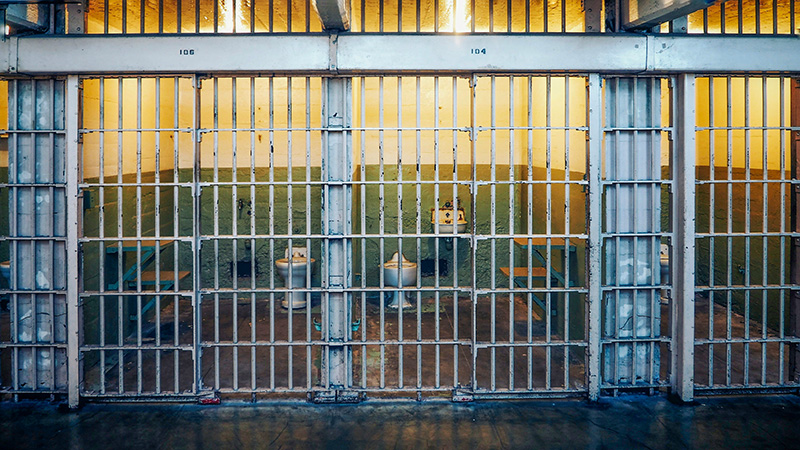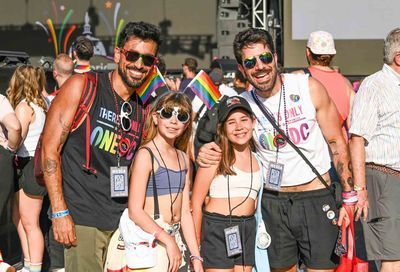Supreme Court Allows Conversion Therapy Ban to Remain in Place
Washington State's conversion therapy ban will remain in place after the U.S. Supreme Court refused to hear a case seeking to overturn it.

The U.S. Supreme Court declined to take up a legal challenge to Washington State’s ban on conversion therapy for minors, thereby allowing the law to remain in effect.
The court voted 6-3 against taking up the appeal from Brian Tingley, a licensed marriage and family therapist who argues that the law is unconstitutional.
Tingley argues that it suppresses his free speech by preventing him from expressing his personal Christian beliefs regarding sexuality — the belief that sexual orientation and gender identity can be changed — while treating his clients with “talk therapy.”
The current law prohibits counselors and therapists from seeking to forcibly change the sexual orientation or gender identity of someone under the age of 18.
Violators can be punished with fines of up to $5,000, subjected to “remedial education,” or have their license to practice suspended or revoked.
Both a lower court and the 9th U.S. Circuit Court of Appeals ruled in favor of the state, finding that Tingley’s free speech rights were not violated.
But on December 11, three justices — Clarence Thomas, Samuel Alito, and Brett Kavanaugh — said they would have heard Tingley’s appeal.
“There is a fierce public debate over how best to help minors with gender dysphoria,” Thomas wrote in his dissent. “The petitioner, Brian Tingley, stands on one side of the divide. He believes that a person’s sex is ‘a gift from God, integral to our very being.'”
Thomas added, “As a licensed marriage and family counselor, Tingley seeks to assist minors who suffer from gender dysphoria but ‘want to become comfortable with their biological sex.’ Tingley does so through ‘talk therapy’ — i.e., therapy conducted solely through speech.
“The State of Washington is on the other side of the divide. Its view is that the State should ‘protec[t] its minors against exposure to serious harms caused by’ counseling to change a minor’s gender identity… and, as a result, that counselors should only affirm a minor’s chosen gender identity.”
Thomas argued that Tingley and other therapists enjoy a right to free speech, even when acting in a professional, rather than a spiritual capacity.
In a separate dissenting opinion, Alito said he would have heard the challenge to the ban.
“In recent years, 20 States and the District of Columbia have adopted laws prohibiting or restricting the practice of conversion therapy,” he wrote. “It is beyond dispute that these laws restrict speech, and all restrictions on speech merit careful scrutiny.
“There is a conflict in the Circuits about the constitutionality of such laws,” Alito continued, referring to an 11th U.S. Circuit Court of Appeals decision that overturned local prohibitions on conversion therapy in South Florida. “And the Ninth Circuit’s holding is based on the highly debatable view that its prior decision in Pickup v. Brown survived at least in part our decision in National Institute of Family and Life Advocates v. Becerra, which singled out Pickup for disapproval.”
Tingley had also suggested that the Supreme Court should take up his case to reconsider a broader question concerning religious rights. He argued that the case showed the need for overturning a past Supreme Court case from 1990, Employment Division v. Smith, in which the court found that laws do not infringe on a person’s religious exercise if they are neutral and don’t target specific religious practices, reports The Hill.
The court considered overturning that precedent in 2021, but ultimately did not.
Three of the court justices — Thomas, Alito, and Justice Neil Gorsuch indicated at the time they were predisposed towards overturning the precedent.
Had it been overturned, Christians like Tingley could argue that any restriction on their ability to espouse their deeply held religious beliefs — or impose those views on their clients — was unconstitutional.
Support Metro Weekly’s Journalism
These are challenging times for news organizations. And yet it’s crucial we stay active and provide vital resources and information to both our local readers and the world. So won’t you please take a moment and consider supporting Metro Weekly with a membership? For as little as $5 a month, you can help ensure Metro Weekly magazine and MetroWeekly.com remain free, viable resources as we provide the best, most diverse, culturally-resonant LGBTQ coverage in both the D.C. region and around the world. Memberships come with exclusive perks and discounts, your own personal digital delivery of each week’s magazine (and an archive), access to our Member's Lounge when it launches this fall, and exclusive members-only items like Metro Weekly Membership Mugs and Tote Bags! Check out all our membership levels here and please join us today!






























You must be logged in to post a comment.